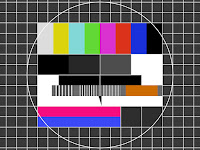As my career in the I/DD field begins to wind down, I still find there are a few subjects that I’d like to be on the record as having voiced my opinion.
Today, I’d like to return to a subject I frequently discuss – language use and how it is reflected by, and sometimes influences, services for individuals with intellectual and developmental disabilities (I/DD).
Many moons ago, when I was new to this field, there was a substantial movement away from housing folks with I/DD in institutions and toward integrating them into the community. This was a great movement and one I am proud to have been witness to and participant in.
As these individuals were moved out of the institutions, a common corollary question was, “Well, what kind of life do these individuals want to lead now that they are living in their communities?”
Almost everyone coming out of the institutions who I asked that question answered in some variation of, “I just want to be treated the same as everyone else.”
And yet, even at the embryonic stage of community living, language was being used to blunt that simple desire. Supports being delivered were being described as “training” or “programs.”
The problem with those terms? They indicate that someone needs to be fixed – they need to be “programmed” or “trained.” They emphasize what a person can’t do.
But advocates and self-advocates would continue to tell me that they didn’t want to be programmed. They didn’t want to be trained. They wanted to focus on the things that they were good at doing and that they enjoyed doing. I think we all feel that way – we don’t generally spend huge portions of our lives trying to fix what’s wrong with us, instead, we emphasize our strengths.
To this day, it frustrates me when I hear the work we do at Imagine! described as a program or as training. At Imagine!, our goal is to emphasize possibilities. We offer services, not programs, and we try to teach, not to train. Programs and training are regulatory and stifling, services and teaching are aspirational and goal oriented.
Language matters, and I offer my opinion on this particular language challenge fervently and unapologetically.
Then again, what do I know?
Wish List Wednesday
6 years ago


Love this :-)
ReplyDelete